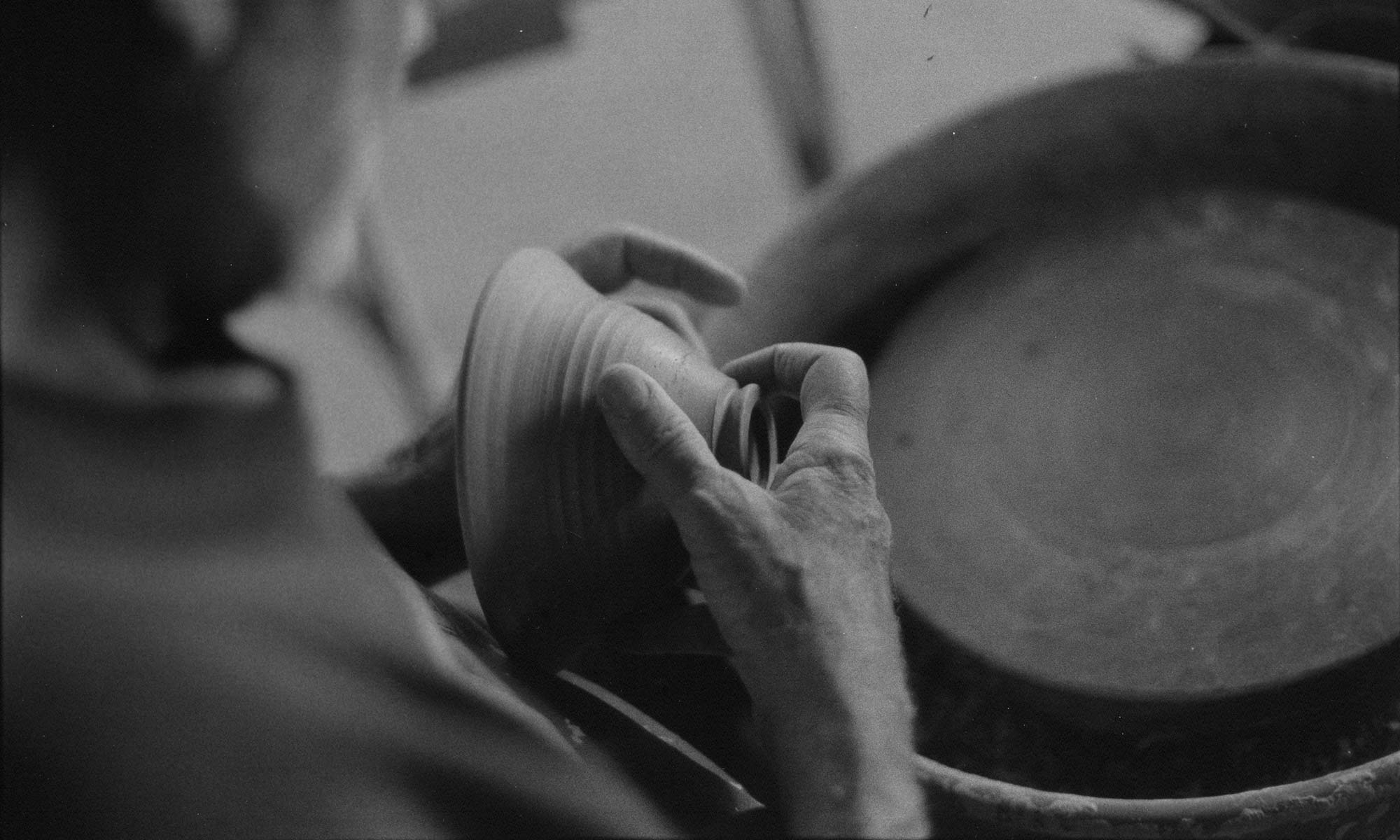Inscriptions are incised in my bowls with a wooden stylus. The practice of incising characters in wet clay tablets dates to around 9000 BCE. The practice of writing (as opposed to simply “incising characters”) in clay tablets dates to c. 3500 BCE, as evidenced in the Mesopotamian (current day Iraq) clay tablets from that era.
In fact, that is how we are able to date and know the story of Gilgamesh – who was the King of Uruk in Mesopotamia, c. 2750 BCE. The oldest written story of Gilgamesh dates from c. 2100 BCE – making Gilgamesh the oldest story, and oldest written story in humankind that has named characters…and we know this because of inscriptions made in clay. This connection of my work to history – making inscriptions in clay – humbles me.
I began this practice in 2008 because of something an old friend told me in the last year of his life. Dietrich and I had worked together raising money for St John’s. The last time we visited he told me that he had always thought of me as a loadbearing brother. I was humbled by that, and inspired to inscribe it in one of my pots. It wasn’t the first thing I incised in a pot, but it began that change in my work.
My inscriptions are in groups of four to match my making process – four bowls per ware board. Each quatrain is a story, or can be – it’s up to you. In addition to the words, on the foot (bottom) of the bowl is the date of making – XXI (2021) and IV (fourth season – winter), and near the foot is my pottery signature, Z. There are also two soaring birds, one inside the bowl and the other out, in honor of the Ladyhawke who welcomed me to my new pottery in north Minneapolis.
It is my hope that my bowls bespeake good fortune and happiness for you and your loved ones.
let go (first two lines, a slight re-working of the AA maxim)
let the Kind Friend
have faith
be patient
accept your blessings
be grateful
listen carefully (first words of the Rule of St Benedict, 6th century CE)
do the right thing
love more (Hafiz, 14th century CE Persian Sufi master)
be happy
give thanks
be more forgiving
do justice (the first three lines are from Micah)
love kindness
walk humbly
God will never forget you (a Bruce Willis movie line I like)
make light
make truth
make beauty
make peace
give back
act great (Hafiz)
start something new (Isaiah, Biblical prophet)
dream if you can (Khayyam, 11th century CE Persian sage, slightly re-worked from “if you can dream”)
from my hand to your heart
your hand in my hand (Hafiz)
your heart with my heart (Hafiz)
your breath and my breath (Hafiz)
every act a kindness
every breath a prayer (based on the monastic practice of the incessantly intoned Jesus prayer)
every kiss a blessing (Hafiz)
every moment of love a lifetime (based on a Gaelic saying)
every act a kindness
every breath a blessing (I like the alliteration and celebration of being alive)
every kiss a prayer (I like the intention and following the tradition of Hafiz to make spiritual matters more understandable by relating them to everyday experiences of life)
every moment of love a lifetime (based on a Gaelic saying)
do good
do for others (Hafiz)
begin a good work (Rule of St Benedict again)
love completely
hope feeds us
faith feeds us
beauty feeds us
we feed each other
wonder feeds us
words feed us (a friend)
music feeds us
art feeds us (Powderhorn Empty Bowls)
to be happy
to behold
to be loved
to be held
floating wishes – home (taken from the celebration of the summer solstice in medieval England in which everyone made a small paraffin candle and put it on a chip of wood – they were lighted and set in the river to carry their wishes – hundreds of “floating wishes” going down the river at sunset)
by the fire and by the pot (the legal description of most marriages in medieval France – the couple shared a hearth and home (fire) and eating (pot), so they were considered to be married even though “unchurched” (had not been married in a church).
the breath of ordinary life (description of the life of commoners from a book on medieval society)
our hearts are meant to sing (Hafiz)
scatter kindnesses (first two lines from the Ridges Care Center in Burnsville, their garden metaphor)
gather love
give back
take heart
loadbearing friends (my friend Dietrich)
pour your heart out (Isaiah – from The Open Door’s guiding rule to feed others)
love lifts us (Hafiz)
we are helpmates all (description of Eve in Genesis, expanded to include us all)
make room for kindness
the strength to keep going
the courage to begin again
blessings on you (common saying on medieval Islamic bowls)
good – to learn (the first three lines – popular medieval mysticism)
better – to teach
best – to love
love leaves a memory (Gaelic saying)
good – to know
better – to understand
best – to be wise
dream if you can (again, modified Khayyam)
love is the great work (Hafiz)
happiness is the work (Hafiz)
passion is the work
kindness is the work
find a joyful work (Hafiz)
have fun
lean on each other (Hafiz)
dream if you can (Khayyam)
kindhearted honey
be patient
be grateful
be kind
do courage
do strength
do passion
stand up
